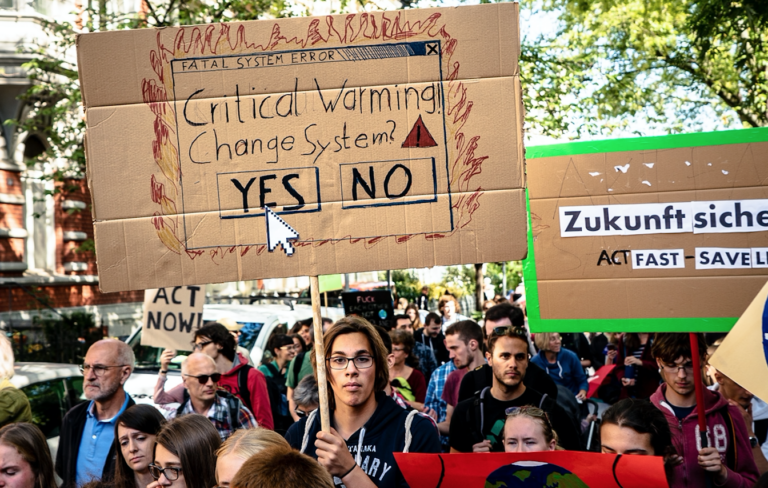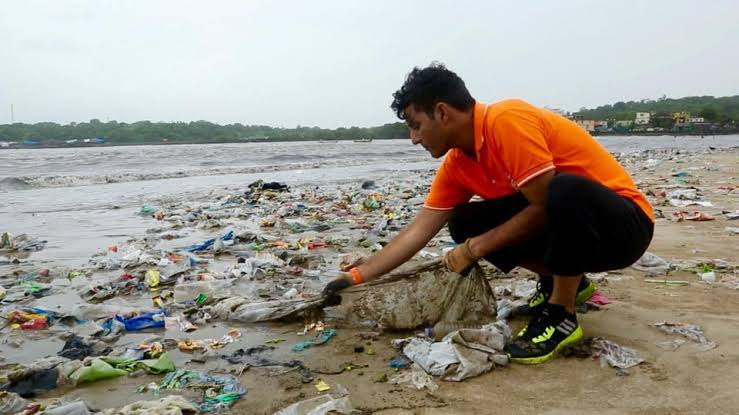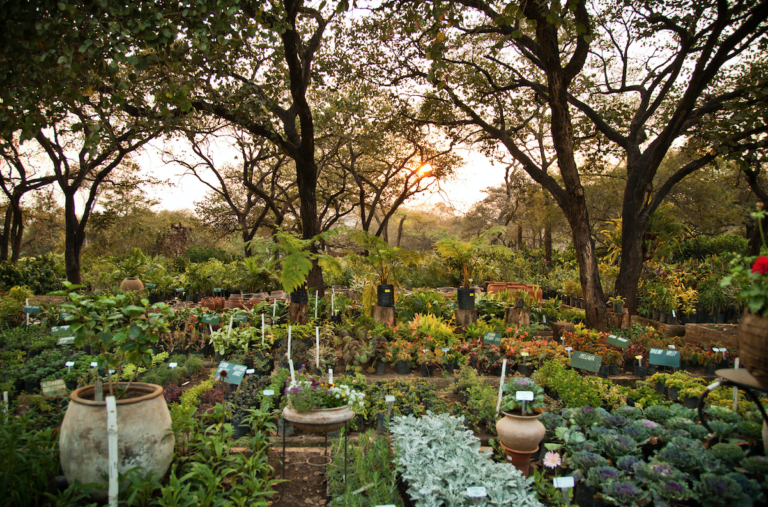2020 is the year for meaningful socio-environmental action. Here are 10 ways to make this year (and beyond) your most sustainable year yet:
1.Address your diet (and call for policy change)
Industrial animal agriculture has been reported to be a major contributor to global heating and is a leading cause of deforestation, water shortages and mass species extinction. According to an article published by the Guardian in 2018: eliminating or reducing meat and dairy consumption is the “single-biggest way” an individual can mitigate their personal impact on the planet.
Vegan ethics aside, we must be cautious to assume that everyone going vegan will solve this issue. According to Holly Rose, an environmentalist and soil advocate, here are a number of aspects you can consider over and above whether something is plant based or not:
- Is it organic / chemical free?
- Is it free of GMOs?
- Was it produced regeneratively?
- Were humans oppressed in the production of this food?
- How is it packaged?
- Is it local?
- Does it consider land rights?
Additionally, grazing animals can play a critical role in regenerative agriculture, assisting to restore top soils and store carbon in the soil. If you choose to eat animal products, why not choose to support carbon negative and/or regenerative farmers?
Lastly, and potentially the most important, is to fight for making healthy, chemical free whole-food plant foods more accessible. According to Rose, in an article on Sentient Media, “fighting to shift current subsidies provided to both animal agriculture and cheap processed food production, over to plant based food production” needs to be addressed.
2. Divest from fossil fuels
According to gofossilfree.org, “fossil fuel divestment takes the fossil fuel industry to task for its culpability in the climate crisis.”
But what is divestment? “It simply means getting rid of stocks, bonds, or investment funds that are unethical or morally ambiguous.” Considering that fossil fuels are a major driver of environmental destruction, social injustice and global heating, investments in fossil fuels can certainly be considered unethical.
What many of us do not realise, is that unless we go out of our way to ensure the investments we have are not funding fossil fuels companies, they most likely are. Be sure to speak to your financial advisor or analyse your own investments and seek out more environmentally friendly and ethical investment funds/options.
For those living in places where fossil fuel divestment is not yet accessible, you can support your local divestment movement and canvas your investment managers and banks to make cleaner investment options available.
Importantly, many universities and institutions are currently invested in fossil fuels. A big way to make a difference would be to pressure institutions you are affiliated with to divest from fossil fuels.

Fossil Free Oxfordshire Protest – one of the many university divestment initiatives from around the world
3. Attend / help organise climate protests
In 2019, “Climate Strike” was announced word of the year by Collins Dictionary – and for good reason. Millions of people, predominantly youth, took to the streets during the course of 2019 to protest lack of action in response to the climate crisis. The climate strikes in 2019 were largely aresult of young people responding to the urgency of the planetary crisis and acknowledging the fact that in order to address the crisis, widespread system change – not just individual change -needs to occur.
There is no doubt that 2020 will see more protests and more people coming out in support of environmental protection and climate action. You can join in on existing protests that are taking place, support those who are leading the organisation of protests in your area or organise your own if there are currently no protests taking place near you.
4. Go flight free (and reduce fossil fuel-based travel)
The Swedish concept of “flygskam” or flight shame has started spreading around the world. According to a survey that was carried out by the Swiss bank UBS, travellers are starting to give up on air travel due to concern for the environment. Indeed, not flying is one of the most significant ways that you can reduce your individual carbon footprint.
This has lead to the emergence of the #FlightFree2020 pledge. People living in developed countries have access to a vast amount of lower-carbon transport options like trains and busses, which still allow travellers to go from one country to the next. As such, the Flight Free 2020 pledge encourages people to commit to going flight free for a year by signing and then sharing the pledge with their network.
Besides flying, general fossil-fuel-based travel can be reduced by:
- Walking / cycling whenever possible
- Working from home and prioritising video conferencing over in-person meetings
- Planning your travels carefully to make the most out of going to one area
- Taking the bus / train instead of driving
- Carpooling with friends and colleagues
- Prioritising regional holidays over holidays that are further away
- If possible, selecting your home location in close proximity to your work / place of learning
5. Consume less (everything) & challenge those who produce
According to National Geographic “much of city dwellers’ climate impact actually comes from the things they eat, use, or buy that originate far outside the city—from food to clothes to electronics and more.” It has also come to be more clear that those in developed countries have far higher carbon footprints than those in third world and developing countries.
As such, a big way to address your carbon footprint would be to consume less…everything. From plastic, to technology, to clothes, to animal products, to energy, to furniture, to wine and chocolates.
According to Patricia Romero-Lankao, an expert on cities and the environment at the National Renewable Energy Laboratory in Colorado, we need to change the way we use energy, heat houses, think of our sense of comfort—which is a cultural thing—buy clothes, all that,” she says. “But we really also need to work with the utilities, the corporations, the big players whose products we’re using.”
What are some ways to do this?
- Vote with your wallet – buy less and buy better
- Start and sign petitions for big players to do better
- Call big players out for bad policies and greenwashing on social media
- Join lobbying groups that are calling on big players to change their ways
6. Address your waste
The zero waste ideal has grown in popularity over the past few years. This ideal focuses on the now known fact: that recycling is not an effective solution to dealing with the world’s waste. As a result, those following a zero waste lifestyle aim to eliminate waste by preventing it in it the first place.
Here are some ways you can learn from those aiming to lead a zero waste lifestyle:
- Say no to single-use items like plastic bottles, bags, coffee cups, straws and cutlery
- Carry a zero waste kit which includes a reusable bottle, bag, cup and whatever else you may need to avoid disposable items
- Always use what you have and don’t become tempted to buy more zero waste alternatives than you really need
- Look to support bulk /zero waste/refill stores that enable you to avoid packaging
- Seek zero waste alternatives in the kitchen and bathroom as your existing products / items reach the end of their life
- Put pressure on big corporates and small stores to address their packaging
7. Clean-up your environment
Beach and other clean ups may not address the root cause of plastic pollution: the production of plastic. However, there is no doubt that they can make a difference and help raise awareness. If you think that the clean up actions of one person won’t make a difference, look to Afroz Shah for inspiration. Shah, a lawyer from Mumbai, India decided to pick up rubbish with a friend on Versova beach in 2015. Since then, his weekend cleans have attracted more and more volunteers who have removed about 13million kgs of waste from the coastline, in what has been labeled “the world’s largest beach cleanup project” by the United Nations.
Your efforts to clean your environment can also be coordinated with your goal to get fit. According to Runners World, “environmentally conscious runners have taken to collecting plastic litter during their runs. The aerobically taxing and rubbish-collecting activity has been named “plogging” – a portmanteau of ‘jogging’ and ‘plucking’ (waste).”
8. Connect with nature, heal living systems and call for eco-restoration
As a start, get outside and connect with nature – embrace the reality that we are profoundly connected to the living systems of Mother earth. The more time we spend immersed in nature, the more we can start to understand the fallacy that humans are separate from the rest of nature.
To connect more with nature, learn to become more self-sufficient and play a part in healing our living systems, take a permaculture course or take part in an ecosystem restoration or rewilding project. Importantly, call on the government and corporations to create climate buffers through mass eco-restoration.
9. Build community & listen to those most affected
According to an article by Jonathan Franzen in the New Yorker, which addresses the fact that the escalating climate crisis is already here and as such we cannot do much to stop it: “any movement toward a more just and civil society can now be considered a meaningful climate action.” This is because in times of increasing conflict and change, Franzen argues that maintaining stable democracies and creating resilient communities can go a long way.
In an interview with Suited Magazine, Celine Semaan, climate and social justice advocate through a fashion lense says “climate change is already here. It’s just not very evenly distributed.” Sadly, those most affected by the climate crisis – black, brown and indigenous groups and the global south – are those who did not create the problem in the first place. Equally, indigenous and traditional groups have many of the answers to the climate crisis.
Listening to those most affected and advocating for indigenous rights and social justice is an important aspect of making 2020 and beyond more sustainable.
10. Inspire others and call for system change
2020 is your year to walk the talk when it comes to sustainable actions. Through your actions and discussions around the planetary crisis you can also inspire others to follow suit. Choose not to preach to people or judge them for their unsustainable actions and rather humbly do the best you can and allow your passion for making a change become contagious and cause a ripple effect of change.
Look to inspiring others to become cognisant of the need for systemic change rather than simple individual action. As Emily Atkin, journalist and creator of HEATED, a newsletter for “people who are pissed off about the climate crisis” said in a recent twitter thread:
“I did not say stop talking about individual action. I did not say individual action doesn’t matter. I said powerful figures talk about individual action too much and systemic change not enough. The most meaningful individual climate action you can do is demand systemic change.”





